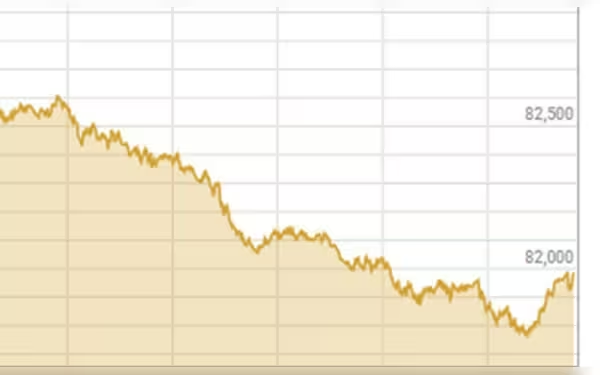Saturday, November 16, 2024 03:22 PM
PSX Declines Over 500 Points Despite IMF Agreement
- KSE-100 index drops 589.95 points.
- FTSE rebalancing triggers market sell-off.
- Investors urged to focus on long-term strategies.
 Image Credits: dawn.com
Image Credits: dawn.comThe PSX experiences a significant drop of over 500 points despite securing an IMF deal, highlighting market volatility and investor concerns.
The Pakistan Stock Exchange (PSX) has recently witnessed a significant downturn, with the benchmark KSE-100 index shedding more than 500 points. This decline comes despite the country securing a deal with the International Monetary Fund (IMF), which many had hoped would stabilize the market. The KSE-100 index closed at 81,657.96 points, down 589.95 points or 0.72 percent from the previous close of 82,247.91 points. Such fluctuations in the stock market can be alarming for investors and stakeholders alike, as they often reflect broader economic sentiments.
Market analysts have pointed to various factors contributing to this decline. Mohammed Sohail, the chief executive of Topline Securities, highlighted that the drop was partly due to "FTSE rebalancing related selling." This means that as the Financial Times Stock Exchange (FTSE) adjusts its indices, some investors may sell off shares to align with the new benchmarks, leading to a temporary dip in prices. Such rebalancing acts as a reminder of how interconnected global markets can be, and how external factors can influence local economies.
Investors often find themselves in a precarious position during such times. While the IMF deal is a positive step towards economic recovery, the immediate market reactions can be disheartening. It is essential for investors to remain calm and consider the long-term implications of their investments rather than reacting impulsively to short-term market movements.
The recent decline in the PSX serves as a crucial reminder of the volatility inherent in stock markets. While the IMF deal is a beacon of hope for economic stability, investors must navigate the complexities of market dynamics with caution. Understanding the reasons behind market fluctuations can empower investors to make informed decisions, ultimately leading to better financial outcomes in the long run.













